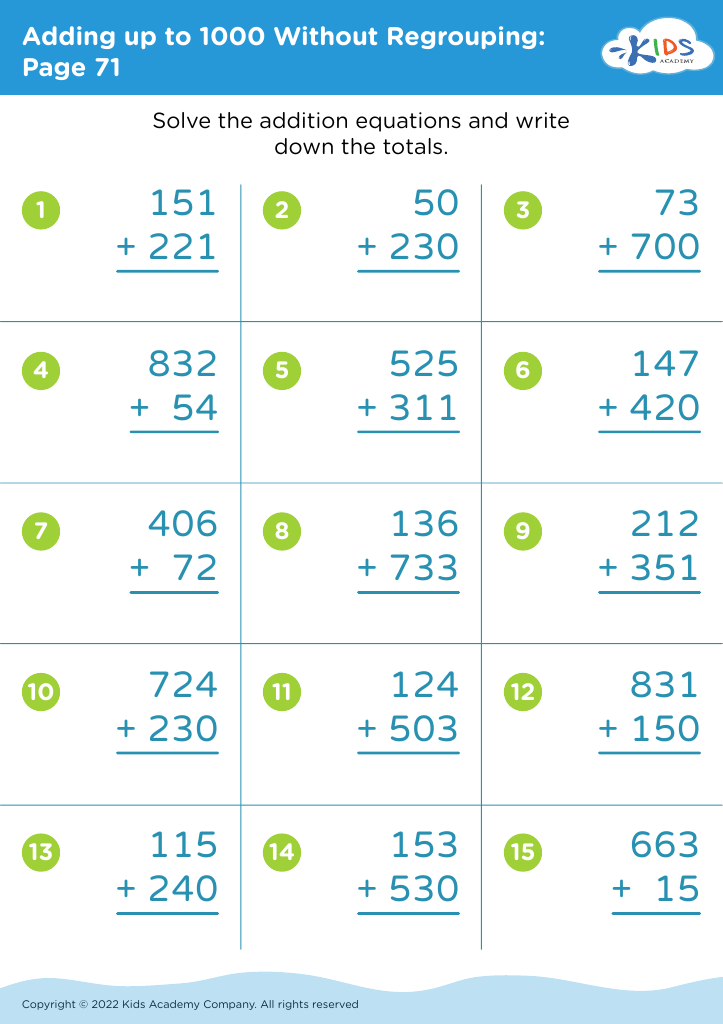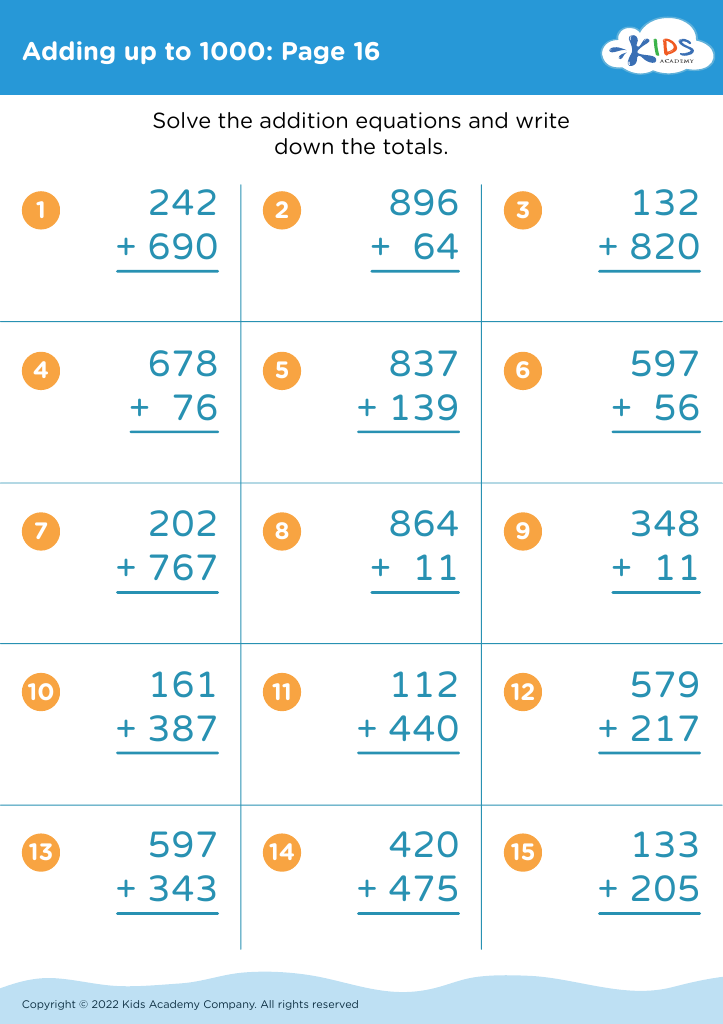Improve counting Addition Worksheets for Ages 7-9
3 filtered results
-
From - To
Discover our "Improve Counting Addition Worksheets" designed specifically for children ages 7-9. These engaging worksheets help strengthen foundational math skills by combining counting and addition through fun and interactive exercises. With a variety of activities that promote numerical fluency, students will enhance their ability to recognize numbers, count objects, and perform basic addition equations. Ideal for classroom settings or homework reinforcement, these resources ensure a thorough understanding of addition concepts. Encourage your child's confidence in math with our comprehensive worksheets that make learning counting and addition enjoyable and effective. Start exploring today and watch your young mathematicians thrive!
Improving counting and addition skills in children aged 7-9 is crucial for their overall mathematical development and cognitive growth. At this age, children transition from basic arithmetic to more complex problem-solving, which sets the foundation for future learning in mathematics and everyday situations. Mastery of counting and addition enhances their confidence and reduces anxiety around math, making them more engaged learners.
Additionally, strong arithmetic skills are essential for their ability to handle real-life tasks such as budgeting, time management, and even cooking. By focusing on improving these counting and addition skills, parents and teachers empower children to approach mathematical concepts with a positive mindset. This age is also critical for developing cognitive strategies such as number recognition and mental math, which are pivotal for higher-level math skills in later years.
Moreover, early interventions can help identify any learning gaps or difficulties, allowing for timely support and structured practice. By fostering these capabilities, parents and teachers not only aid academic performance but also instill critical thinking and problem-solving skills that benefit children both inside and outside the classroom. Ultimately, reinforcing these skills helps build a strong mathematical foundation that will serve children well throughout their education and daily lives.



















